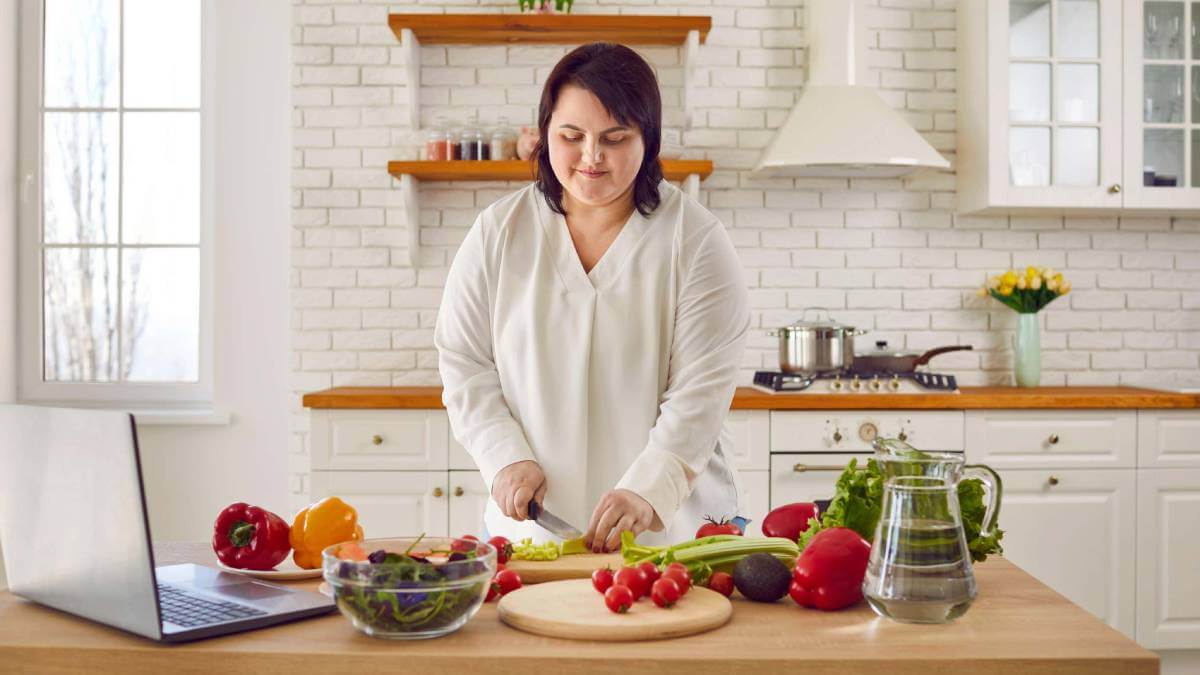More than one billion people around the world are now living with obesity, a new global analysis suggests.
As of 2022, around 159 million children and adolescents and 879 million adults are obese, according to research published in The Lancet.
In Australia, almost two-thirds of adults are overweight or obese, according to the Australian Bureau of Statistics.
So, what causes obesity, and how can people have a healthier relationship with food?
Obesity is a complex issue
“Obesity is considered a complex health issue, because it can be caused by the interplay of numerous factors about the individual’s physiology, genetics, socio-economic status (such as how much they earn) and more,” says Carolina Goncalves, superintendent pharmacist at Pharmica. “It is often thought that obesity is caused by overeating or a failure to exercise, but in reality, obesity can be caused by numerous factors that are not necessarily in the affected individual’s control.”
View this post on Instagram
Some people may have other health conditions or mobility difficulties that also play a part. It’s believed our environments and modern lifestyles are also a big factor.
“The world has changed dramatically over the past 100 to150 years. The availability of convenience and fast foods, supermarket deals such as two-for-one and bigger portion sizes, the ease with which we can move around with cars, public transport and plane travel, and our work-life balance have all changed – some for the better, some for the worse,” says Louise Wright, physiology national lead at Nuffield Health.
“With these changes has come a change in energy requirements, so if we end up taking on board a few more calories than needed, plus reduce our energy output (i.e. our activity levels), we can end up out of balance and thus store this excess energy as body fat.”
Mental and emotional health can also play a role, particularly if somebody has a food addiction or binge-eating disorder – when someone eats very large amounts of food in a short time.
“People who do this might feel a lack of control over their eating, sometimes eating rapidly, alone, and until they’re uncomfortably full. It also brings with it strong negative emotions, with some people feeling depressed, guilty, or disgusted with themselves. This unhealthy relationship with food is often difficult to spot in friends and family as it is done in secrecy,” says Dr Catherine Carney, a psychiatrist at Cheshire-based private addiction rehab clinic, Delamere.
“Negative physical health impacts from binge eating include increased risk of heart disease, strokes, and type 2 diabetes, as well as digestive and respiratory issues.”
How can people develop a healthier relationship with food?

To build a healthier relationship with food, it’s usually necessary to look at both the mind and body together, and consider what’s going on for someone as an individual.
“Everyone has their own relationship with food, so a personalised recovery program that meets your specific needs, following a physical assessment from a doctor, is recommended. The assessment should identify any serious risks or dangers, and the recovery program will focus on creating healthy habits while eating food,” says Dr Carney.
There might be a number of things that need to be worked – including our cooking skills, psychological state, physical activity, our access to food and how we think about food.
View this post on Instagram
“Our childhood experiences can affect our relationship with food too, and sometimes we need to relearn how to reform a healthy relationship with food. Furthermore, it’s important to try to focus on the small aspects first, rather than attempting to overhaul your diet and lifestyle all at once,” says registered nutritionist Jenna Hope, author of How To Stay Healthy.
“Simple things such as drinking more water, walking for 10 minutes extra per day, or aiming for an extra portion of vegetables per day are a great place to start. It doesn’t have to be complicated – small changes can have a big difference.”
Dr Carney also suggests sharing your cravings with friends and family to lift the burden. Her other advice includes trying to eat with friends or family to tackle the loneliness, practicing self-care in preparation for cravings, triggers and relapses, and creating structured meal plans and times in the day to eat.
Psychological support is also key
Dr Carney believes psychological support, such as counselling, is “absolutely” important.
“Obesity and other issues relating to eating have psychological issues at their root,” she explains. “It is a psycho-physical issue, so a dual approach will be needed if someone is to truly recover in as healthy a way possible, and so it doesn’t lead to something worse, such as an eating disorder.”
Ms Goncalves says addressing binge eating also “requires a comprehensive approach that includes psychological support, nutritional counselling, and, in some cases, medical intervention to break this cycle and promote healthier eating habits and body weight regulation, such as Orlistat, Wegovy (semaglutide) and Saxenda (liraglutide).”
Do you have a healthy relationship with food? Why not share your experience in the comments section below?
Also read: Hidden heart disease the next cardiac epidemic
– With PA

